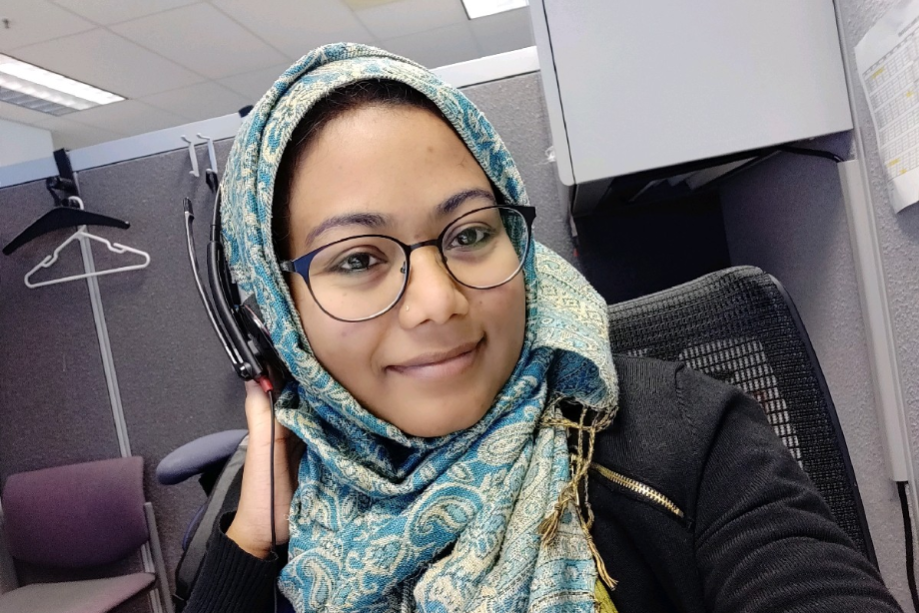HPC is Fun, it’s the game of making slow things fast in a scalable and resilient way. When you find this fun, you will become a part of this HPC family!
Our new series, Paths to HPC, showcases women working in high-performance computing. Our hope is that by highlighting these trailblazers—and the sometimes unique paths they followed into the field—other women will feel inspired to envision themselves in similar roles.
Today we talk with Jesmin Jahan Tithi, a research scientist at the Parallel Computing Labs, Intel.
Jesmin Jahan Tithi is focusing on high-performance computing and software-hardware codesign of next-generation processors targeting large-scale machine learning and graph applications at Intel. She received her Ph.D. from Stony Brook University, New York (SUNYSB), and worked as an intern in Google, Intel, and PNNL during her Ph.D. After finishing her B.Sc in Computer Science and Engineering from the top Engineering School of Bangladesh (Bangladesh University of Engineering and Technology ), she also worked as a Lecturer in the same prestigious department. Jesmin has been actively involved in Women in HPC and STEM workshops and taught freshmen, girls, about HPC in the WSC courses at SUNYSB. As a pet project, Jesmin is working on Ethics in AI and she has organized the Ethics in AI work at the 7th Heidelberg Nobel Laureate Forum, Germany where she was invited as a young researcher. Jesmin is also an active member of the ACM Future of Computing Forum whose task is the shape the future of ACM.
Why did you choose a career in HPC?
It was chosen for me by divine intervention. During my Ph.D., I wanted to work on natural language processing, but the professor did not have funding at that time. My second choice was to work on bioinformatics and the professor who was working on Bioinformatics was also working on parallel algorithms. I took his course on parallel algorithms and supercomputing and I was able to work on some exciting Homeworks on graph and sorting algorithms as well as molecular dynamics where I saw the power of parallelization and how and why in-efficient data movement impacted the performance of a program. That opened up a whole new area to me that I was completely unfamiliar with. It captivated me.
I usually do not play video games, but extracting performance from a parallel program feels like a game to me. After graduation, I had the choice to be a software engineer at a tech giant or keep pursuing my research on parallel algorithms. I chose the latter. And now all tech giants need to use parallel algorithms as well as many other HPC techniques to deal with their big data or graph analytics as well as ML/AI problems! With a CS bachelor and Parallel Algorithms/HPC Ph.D., I feel like, It’s much easier for me to switch jobs given all Big Data problems have become HPC problems!
What excites you about the future of HPC?
I used to think that HPC is a narrow area that relates to only scientific computing, weather simulations, physics, or biological simulations. But in the last few years, the ideas or concepts used in HPC have started getting used in big-data problems including large scale graph processing to AI and machine learning problems. Deep learning has become an HPC problem now. Because of the growth of data and the speed of computers, HPC has crossed its traditional application boundary and is touching many more application areas. This brings many new challenges, as well as opportunities for innovations. This excites me the most.
What are the top three things you would advise to women considering a career in HPC?
- HPC is Fun, Go for it.
- Encourage other women to join HPC, since there are still very few of us!
- HPC is expanding. Get in-depth knowledge of HPC and Algorithmic principals, then expand your breadth by applying your knowledge to new emerging fields and always remain keen on learning.
What is your most proud accomplishment in the sector to date?
One of my publications was cited by David A. Patterson a Turing award winner and the author of the textbook I studied during my undergrad and grad school. That made me proud for a while.

